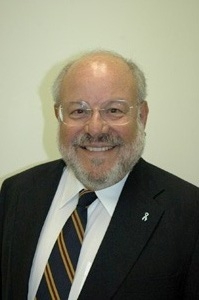In the documentary, Andrew Napuat, a member of the Parliament of the nation of Vanuatu, an 83-island archipelago in the Pacific, says: "We have the right to say no to the Japan solution. We can't let them jeopardize our sustenance and livelihood."
"China condemns Japanese plan to release Fukushima water," was the headline of an Associated Press report. It quoted a Foreign Ministry spokesperson as saying it "concerns the global marine environment and public health, which is not a private matter for the Japanese side."
Sean Burnie, a senior nuclear specialist with Greenpeace who has been involved in the aftermath of the Fukushima disaster, is quoted in the Guardian as describing as "scientifically bankrupt" the claim the tritium would not pose a health risk. "It is internal exposure to organically bound tritium that is the problem when it gets inside fish, seafood, and then humans. When tritium gets inside cells, it can do damage. Tepco and the Japanese government are making a conscious decision to increase marine pollution with radioactivity, and they have no idea where that will lead."
The International Atomic Energy Agency is supporting the scheme. However, the agency was established by the UN as an international version of the U.S. Atomic Energy Commission with its mission, like that of the AEC, to promote nuclear technology as the IAEA statute says "to accelerate and enlarge the contribution of atomic energy "while also regulating it, a continuation of nuclear conflict interest but on the international level.
Back in the U.S.A., some 138 groups organized in a Stop Holtec Coalition have been calling on New York Governor Kathy Hochul to stop Holtec's plan to dump a million gallons of tritium-contaminated water into the Hudson River.
A letter they sent to the governor says "we are deeply concerned about the impacts on the health and safety of local resident, the river's ecosystem, and local economy. The Hudson Valley region is densely populated and also serves as a recreational area for millions from New York City and across the state"The Indian Point nuclear power plant was rightfully shuttered in 2021, yet the spent fuel pool wastewater remaining on the site contains radioactive contaminants, including tritium. Exposure to tritium is linked to cancer, miscarriages, genetic defects and other health effects."
Organizations signing the letter include Food & Water Watch, Grassroots Environmental Education, Hudson Riverkeeper, Hudson River Sloop Clearwater, Indian Point Safe Energy Coalition, Promoting Health and Sustainable Energy.
There was legislation passed in the New York State Assembly in June and in the State Senate in May banning "the discharge of any radiological agent into the waters of the state."
There have been demonstrations protesting the plan, a petition drive with more than 400,00 signatures, and resolutions passed by local governments opposing the release. The first was passed unanimously in March by the Westchester Board of Legislators. It noted how "pre-release treatment would not remove tritium" from water, that tritium is "carcinogenic" and that "there are seven communities" that "source their drinking water from the Hudson." The Indian Point plants are in Westchester County, 25 miles north of New York City.
(Note: You can view every article as one long page if you sign up as an Advocate Member, or higher).





